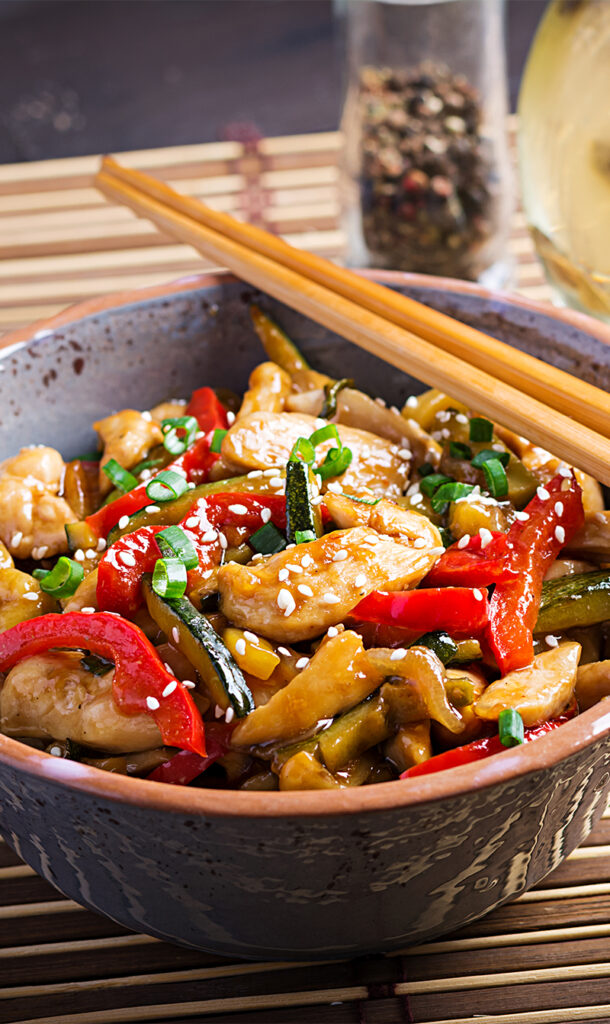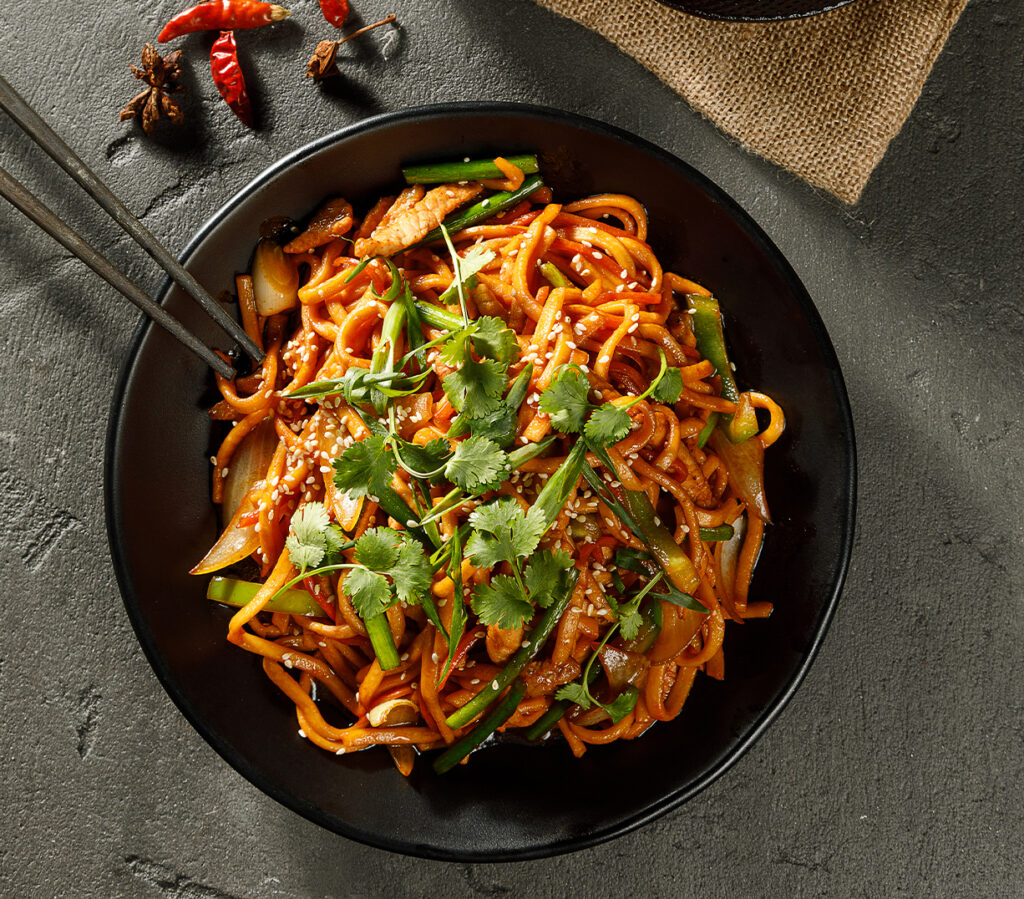Nutrition Facts
Nutrition Facts of Chinese Food. What You Need to Know?
Chinese cuisine typically uses a variety of spices and herbs, such as ginger and garlic, which can have anti-inflammatory and antioxidant properties.
Chinese cuisine typically includes a variety of vegetables, which can provide essential vitamins and minerals.
Chinese food is often high in carbohydrates, due to the use of rice, noodles, and other starches.
Many Chinese dishes are high in protein, thanks to ingredients such as tofu, chicken, and shrimp.
Fried Chinese foods, such as egg rolls and fried rice, can be high in calories and unhealthy fats.
Steamed or boiled Chinese dishes, such as steamed dumplings or vegetable dishes, are often healthier options.
Many Chinese dishes are gluten-free, making them suitable for people with gluten intolerance or celiac disease.
Chinese tea is a popular beverage in Chinese cuisine and can provide health benefits such as antioxidants and improved digestion.
Chinese hot pot dishes, which typically include a variety of meats and vegetables cooked in a simmering broth, can be a healthy and filling option.
Many Chinese dishes are low in fat, as they are often stir-fried or lightly cooked in oil.
Chinese cuisine includes a variety of seafood, which can provide essential omega-3 fatty acids.
Chinese cuisine often includes fermented foods, such as pickled vegetables and tofu, which can provide probiotics and aid digestion.
Chinese herbal medicine often uses ingredients such as ginseng and goji berries, which are believed to have health benefits such as improved energy and immunity.
Chinese food is often high in sodium due to the use of soy sauce, oyster sauce, and other salty seasonings.




